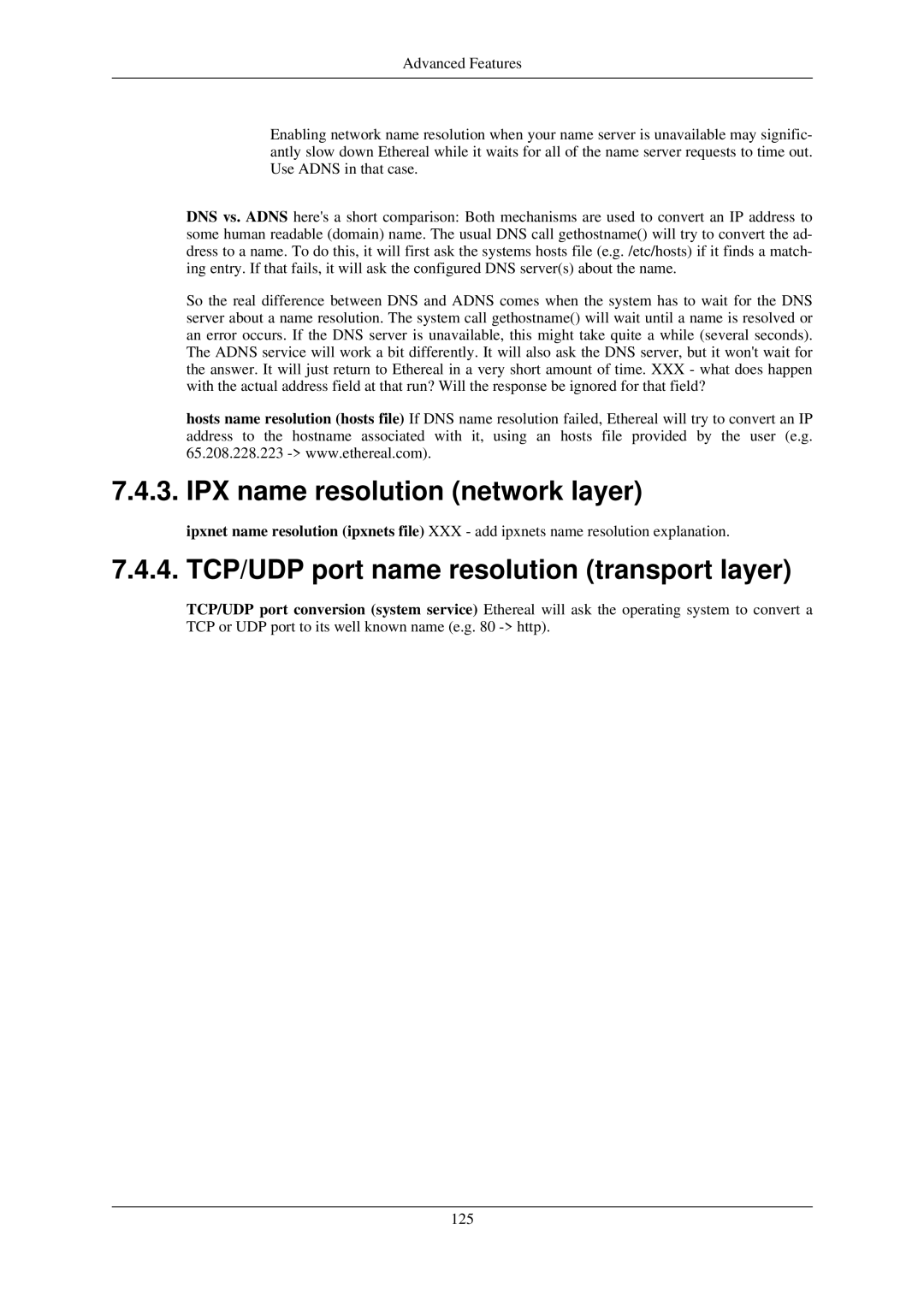
Advanced Features
Enabling network name resolution when your name server is unavailable may signific- antly slow down Ethereal while it waits for all of the name server requests to time out. Use ADNS in that case.
DNS vs. ADNS here's a short comparison: Both mechanisms are used to convert an IP address to some human readable (domain) name. The usual DNS call gethostname() will try to convert the ad- dress to a name. To do this, it will first ask the systems hosts file (e.g. /etc/hosts) if it finds a match- ing entry. If that fails, it will ask the configured DNS server(s) about the name.
So the real difference between DNS and ADNS comes when the system has to wait for the DNS server about a name resolution. The system call gethostname() will wait until a name is resolved or an error occurs. If the DNS server is unavailable, this might take quite a while (several seconds). The ADNS service will work a bit differently. It will also ask the DNS server, but it won't wait for the answer. It will just return to Ethereal in a very short amount of time. XXX - what does happen with the actual address field at that run? Will the response be ignored for that field?
hosts name resolution (hosts file) If DNS name resolution failed, Ethereal will try to convert an IP address to the hostname associated with it, using an hosts file provided by the user (e.g. 65.208.228.223
7.4.3. IPX name resolution (network layer)
ipxnet name resolution (ipxnets file) XXX - add ipxnets name resolution explanation.
7.4.4. TCP/UDP port name resolution (transport layer)
TCP/UDP port conversion (system service) Ethereal will ask the operating system to convert a TCP or UDP port to its well known name (e.g. 80
125
